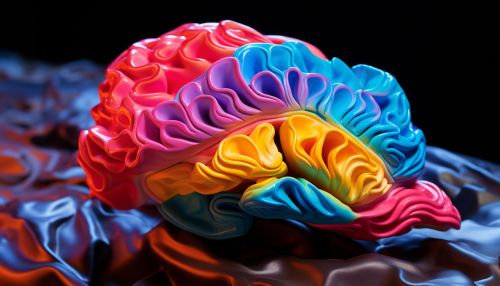Cognitive Mechanisms of Self-Deception and Rationalization
Introduction
Self-deception is a complex cognitive process that involves the manipulation of one's own beliefs and perceptions to align with one's desires or needs. This psychological phenomenon is often linked to the concept of rationalization, where individuals construct logical justifications for their beliefs or actions, especially when these are inconsistent with reality. Understanding the cognitive mechanisms behind self-deception and rationalization requires a deep dive into the realms of cognitive psychology, neuroscience, and philosophy of mind.


Cognitive Mechanisms of Self-Deception
Self-deception can be understood as a two-step process involving the generation and maintenance of false beliefs. The cognitive mechanisms involved in these processes are complex and multifaceted, involving various aspects of cognition such as memory, attention, and reasoning.
Generation of False Beliefs
The generation of false beliefs in self-deception often involves the selective processing of information. This can occur through confirmation bias, where individuals selectively attend to information that supports their desired beliefs and ignore or downplay information that contradicts them. Another mechanism is motivated reasoning, where individuals interpret ambiguous information in a way that aligns with their desires or needs.
Maintenance of False Beliefs
Once false beliefs have been generated, they need to be maintained for self-deception to persist. This can occur through various cognitive mechanisms, such as cognitive dissonance, where individuals experience discomfort when confronted with information that contradicts their beliefs, leading them to ignore or reject this information. Another mechanism is belief perseverance, where individuals continue to hold onto their beliefs even when they are faced with strong evidence to the contrary.
Cognitive Mechanisms of Rationalization
Rationalization involves the construction of logical justifications for beliefs or actions that may not be grounded in reality. It is often seen as a defense mechanism that allows individuals to maintain their self-image and avoid feelings of guilt or shame.
Construction of Justifications
The construction of justifications in rationalization often involves the use of causal reasoning and counterfactual thinking. Individuals may construct elaborate causal narratives to explain their beliefs or actions, even when these narratives are not supported by evidence. They may also engage in counterfactual thinking, imagining alternative scenarios that could have occurred to justify their current situation.
Maintenance of Justifications
Just like in self-deception, the justifications constructed in rationalization need to be maintained for the process to persist. This can occur through mechanisms such as confirmation bias and motivated reasoning, where individuals selectively attend to information that supports their justifications and interpret ambiguous information in a way that aligns with them.
Interplay between Self-Deception and Rationalization
While self-deception and rationalization are distinct processes, they often interact in complex ways. For example, self-deception can lead to rationalization, as individuals construct logical justifications for their false beliefs. Conversely, rationalization can facilitate self-deception, as the justifications constructed can reinforce the false beliefs.
Implications and Future Directions
Understanding the cognitive mechanisms of self-deception and rationalization has important implications for various fields, including psychology, neuroscience, philosophy, and even law and politics. It can help us understand why individuals hold onto false beliefs and make irrational decisions, which can inform interventions to promote rational thinking and decision-making.
Future research in this area could explore the neural correlates of self-deception and rationalization, the role of individual differences in these processes, and the impact of these processes on various aspects of human behavior and society.
